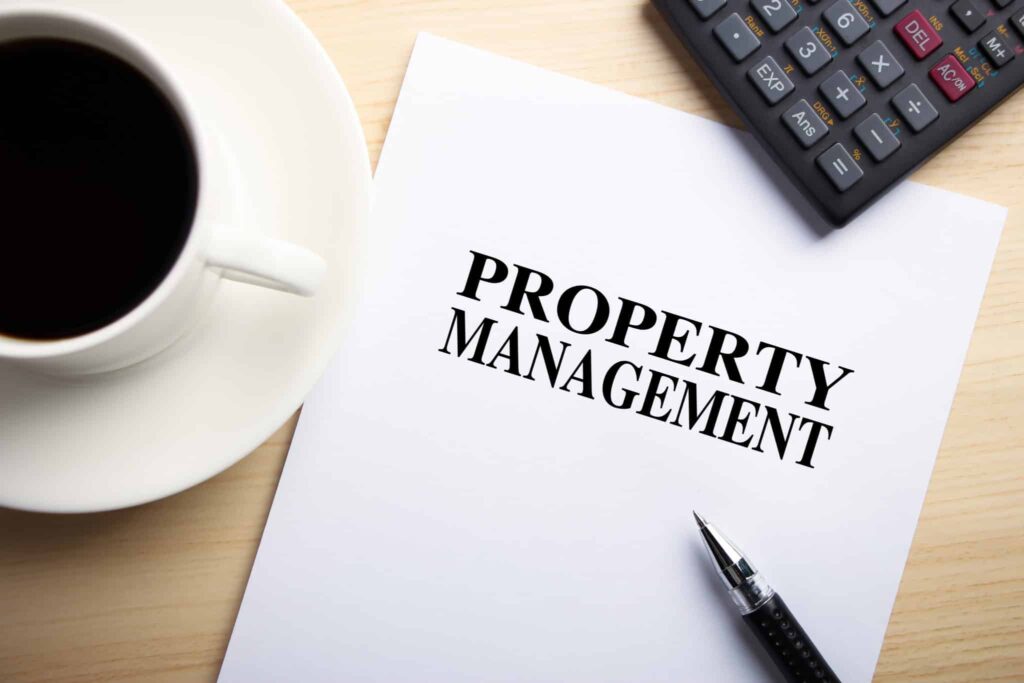Break Into Property Management with Jerre Walker (Part 2 of 2)

In this episode, we continue our conversation with Jerre Walker, a seasoned property manager with over 20 years of experience. Jerre shares why property management is a powerful—yet often overlooked—path to building steady, recurring income in real estate. Hosts: Jerre Walker, Andrew Michael Arroyo, & Gary Giffin Consistent Income in a Shifting Market Unlike sales, where income can rise and fall with market trends, property management offers stability through monthly rental income. Jerre highlights how this steady cash flow can serve as a financial buffer during slower sales seasons. Referrals Fuel Long-Term Success Jerre attributes much of her growth to referrals from satisfied tenants and property owners. These repeat clients form a trusted network that supports long-term success and deepens community connections. The Value of Mentorship Early in her career, Jerre was mentored by her brother—a relationship she credits as foundational. She encourages newcomers to find experienced mentors to guide them through the legal, financial, and interpersonal aspects of the business. Smart Strategies for Profitability Jerre also stresses the importance of setting realistic income goals based on local market conditions. Adapting to shifting rental demands and staying informed can directly impact profitability and client satisfaction. Commitment Beyond Contracts For Jerre, property management is more than a job—it’s a commitment to maintaining properties and meeting tenant needs with care and consistency. That mindset, she says, is what sets great property managers apart. Whether you’re exploring new income streams or ready to deepen your real estate career, Jerre’s insights offer practical and inspiring guidance. Tune in to hear her full story and learn how to thrive in property management.
Is Investing in Multifamily Properties Right for You? Key Things to Consider Before Making a Purchase

If you’re looking to invest in real estate, multifamily properties can be a great option to consider. However, before making a purchase, it’s important to do your research and consider several key factors to ensure that you make an informed decision. In this article, we’ll explore some of the most important factors to keep in mind when investing in multifamily properties. From location and rental demand to financing, management, and legal requirements, we’ll provide a comprehensive guide to help you make the right investment decision. So whether you’re a first-time investor or an experienced real estate professional, read on to learn more about how to invest in multifamily properties. If you’re considering investing in multifamily properties, there are several important considerations to keep in mind. Here are a few key factors to consider before making a purchase: Location: The location of the property is a crucial factor in its success as a rental property. Look for areas with strong rental demand, good schools, and access to transportation and amenities. Rental demand: Before investing in a multifamily property, it’s important to research the local rental market to understand the level of demand for rental properties in the area. Consider factors such as vacancy rates, rent prices, and tenant demographics. Financing: Financing a multifamily property can be more complex than financing a single-family home. Be sure to research your financing options and work with a lender who has experience with multifamily properties. Management and maintenance: Managing a multifamily property can be more complex than managing a single-family home. Consider whether you have the time and resources to manage the property yourself or whether you’ll need to hire a property manager. Legal and regulatory requirements: Owning a rental property comes with legal and regulatory requirements, such as landlord-tenant laws, building codes, and insurance requirements. Be sure to research and understand these requirements before making a purchase. Cash flow: Analyze the potential cash flow of the property to ensure that it will provide a positive return on investment. Consider factors such as rental income, operating expenses, and financing costs. Market trends: Real estate markets can be cyclical, so it’s important to research market trends and conditions before making a purchase. Consider factors such as job growth, population growth, and local economic conditions. By carefully considering these factors and doing your research, you can make an informed decision about whether investing in a multifamily property is the right choice for you. Remember, owning a rental property can be a complex and challenging endeavor, but with the right approach, it can also be a profitable and rewarding investment.
Investing in Multifamily Properties: What You Need to Know

Multifamily Properties 101: Types, Pros and Cons Multifamily properties, or buildings that contain multiple units for residential purposes, can be an attractive investment option for real estate investors. These properties can range from small duplexes to large apartment complexes and offer several advantages, such as increased cash flow, economies of scale, and diversification of risk. However, before jumping into the multifamily space, it’s important to understand the types of properties, the pros and cons, and the considerations involved in investing in these properties. Types of Multifamily Properties Multifamily properties can be categorized based on the number of units they contain, such as duplexes, triplexes, fourplexes, or apartment complexes. Duplexes and triplexes are smaller properties that are typically owner-occupied or rented out to individual tenants. Fourplexes and larger apartment complexes are often professionally managed and can offer more income potential but also come with higher costs and more complex management requirements. Pros and Cons of Multifamily Housing Investing in multifamily properties has several advantages, such as increased cash flow from multiple rental units, the potential for economies of scale in management and maintenance, and reduced risk through diversification. However, there are also some drawbacks to consider, such as the complexity of financing and management, potential legal and regulatory issues, and the risk of vacancies and turnover. Considerations before Investing in Multifamily Properties Before investing in a multifamily property, there are several important considerations to keep in mind. These include the location of the property, the level of rental demand in the area, financing options, management and maintenance requirements, legal and regulatory requirements, cash flow analysis, and market trends and conditions. Location is Key The location of a multifamily property can have a significant impact on its success as a rental property. Look for areas with strong rental demand, good schools, and access to transportation and amenities. Know Your Financing Options Financing a multifamily property can be more complex than financing a single-family home. Be sure to research your financing options and work with a lender who has experience with multifamily properties. Understand Landlord-Tenant Laws Owning a rental property comes with legal and regulatory requirements, such as landlord-tenant laws, building codes, and insurance requirements. Be sure to research and understand these requirements before making a purchase. Investing in multifamily properties can be a lucrative opportunity for real estate investors, but it’s important to understand the types of properties, the pros and cons, and the considerations involved before making a purchase. By carefully considering the location, rental demand, financing options, management and maintenance requirements, legal and regulatory requirements, cash flow analysis, and market trends and conditions, investors can make informed decisions and achieve success in the multifamily space.
What Are The Benefits Of Hiring A Property Management Company For Your Rental Property?

Owning a rental property can be a profitable investment, but it can also be time-consuming and stressful. A property management company can help ease the burden by handling all the day-to-day operations of your rental property. Here are some of the services a property management company can provide to make owning a rental property less stressful: Tenant screening: A property management company will thoroughly screen potential tenants to ensure that you’re renting to responsible and reliable tenants who will take care of your property and pay their rent on time. Rent collection: A property management company takes care of rent collection for you, ensuring that you receive your rent on time every month. They will also handle any late payments and follow up with tenants who have fallen behind on rent. Maintenance and repairs: A property management company will handle all maintenance and repairs for your property, from regular maintenance like landscaping and cleaning to emergency repairs like plumbing and electrical issues. Legal compliance: A property management company stays up-to-date on all the latest laws and regulations, ensuring that you’re always in compliance. They will also handle any legal issues that may arise, such as eviction proceedings or disputes with tenants. Maximizing your investment: A property management company can help you maximize the value of your investment by providing you with advice on how to make improvements to your property that will increase its value and attract high-quality tenants. They can also help you set the right rent price for your property, ensuring that you’re getting the most out of your investment. By hiring a property management company, you can remove the stress of leasing a property and enjoy the benefits of being a landlord without all the headaches.
What Does A Property Management Company Typically Analyze Before Taking On The Responsibility Of Managing A Property?

Investing in a property can be a lucrative opportunity, but managing it can quickly become overwhelming, especially if you don’t have the time or expertise to handle the day-to-day responsibilities. That’s where a property management company comes in. These professionals conduct a comprehensive analysis of the property before taking on its management responsibilities. In this article, we will take a closer look at the elements of a property analysis that a property management company typically undertakes. From physical inspections to financial analysis, you’ll gain an understanding of what to expect from a property management company’s assessment and how it can help you maximize the value of your investment. Conduct an analysis of a property before taking on the responsibility of managing it. This analysis is designed to identify any potential issues or areas of concern, as well as to assess the overall condition and value of the property. Here are some of the main elements of a property analysis that a property management company will typically undertake: Physical Inspection The property management company will conduct a physical inspection of the property to assess its overall condition. This may include an assessment of the exterior and interior of the property, including any common areas or amenities. They will be looking for any signs of damage or wear and tear, as well as any potential safety hazards. Rent Analysis The property management company will conduct a rent analysis to determine the appropriate rental rate for the property. They will assess the current rental market, compare the property to other similar properties in the area, and take into account any unique features or amenities that the property may offer. Tenant Analysis If the property has existing tenants, the property management company will conduct a tenant analysis to assess the quality of the tenants and their rental history. They will look at factors such as payment history, lease compliance, and any previous disputes or legal issues. Maintenance Needs The property management company will assess the maintenance needs of the property, including any repairs or upgrades that may be necessary. They will also develop a maintenance plan to ensure that the property is well-maintained and in good condition for the tenants. Financial Analysis The property management company will conduct a financial analysis to assess the profitability of the property. This may include an assessment of current and potential rental income, expenses such as taxes and maintenance costs, and any potential tax benefits or deductions. The overall goal of a property analysis is to identify any potential issues or areas of concern that could impact the profitability and value of the property. The property management company is seeking to ensure that the property is in good condition, that the rent is set appropriately, and that the property has the potential to generate positive cash flow and provide a good return on investment. By conducting a thorough property analysis, the property management company can develop a plan to address any issues and maximize the value of the property for the owner.
What’s the difference between a property manager and real estate agent?

As a real estate investor or landlord, you might be wondering about the difference between a property manager and a real estate agent. Both professionals have distinct roles in the real estate industry, and understanding their responsibilities can help you make informed decisions. A property manager is responsible for managing properties on behalf of the owner. They handle the day-to-day operations, including collecting rent, screening tenants, managing maintenance and repairs, and handling tenant complaints. They also ensure that the property complies with local regulations and laws. On the other hand, a real estate agent helps people buy, sell or rent properties. They assist with property marketing, listing, showing and negotiating deals. They work with clients to identify suitable properties based on their needs and budget and advise on market trends and property values. While a property manager focuses on managing the property, a real estate agent focuses on finding buyers, sellers or renters for the property. They have different skill sets and knowledge bases, although some professionals may have experience in both areas. It’s important to note that some states require property managers to have a real estate license, but not all property managers are real estate agents, and vice versa. When looking to hire a professional, make sure to understand their qualifications and experience to ensure they are the right fit for your needs. In summary, a property manager manages the day-to-day operations of a property, while a real estate agent helps buy, sell or rent properties. Both professions play important roles in the real estate industry and can be valuable assets to property owners and investors.
What is the Role of a Property Management Agent?

What is the Role of a Property Management Agent? As a property owner, it can be overwhelming to manage your property on your own. This is where a property management agent comes in to help. A property management agent is responsible for handling the day-to-day operations of your property. They take care of tasks such as finding tenants, collecting rent, and maintaining the property. One of the primary responsibilities of a property management agent is to find and screen tenants. This involves marketing the property, showing it to potential tenants, and conducting background checks. Once tenants have been selected, the property management agent is responsible for collecting rent and managing any late payments. They also handle maintenance requests, repairs, and emergencies that arise on the property. In addition to managing the property itself, a property management agent also acts as a liaison between the property owner and tenants. They handle any issues that arise and ensure that both parties are satisfied. Overall, a property management agent plays a crucial role in managing your property and ensuring its success. By taking care of day-to-day operations and acting as a liaison, they help to alleviate stress and provide peace of mind for property owners.
Appfolio Says Property Management Is A Thriving Industry

Property management is a thriving industry, as indicated in AppFolio’s 2023 Property Management Benchmark Report. The report aims to help property managers compare their experiences in the current economy with their peers in other industries. Despite economic pressures, the report finds that owning or managing residential rental property is currently favorable. The survey involved nearly 5,000 employees at U.S.-based property management companies and found that risks vary among companies of different sizes. Inflation and delinquencies are the biggest risks in the coming year for nearly half of the organizations surveyed across all sizes. Larger organizations with specialized roles and more employees are more likely to face challenges in retaining current employees. The report shows that property management companies see tremendous opportunities for both expansion and improvement in 2023. Adding new units to their portfolio is the biggest opportunity cited by 55% of the companies surveyed across all sizes. Streamlining and automating operations are also considered significant opportunities for all sizes of property management companies. The survey reveals that there is a high level of agreement across all business sizes regarding the opportunity to streamline financial functions for residents and their businesses. All three business sizes identified processing more rent payments online and improving the accounts payable process as opportunities. Property management organizations with more than 5,000 units under management are more likely to use every type of property management technology, but smaller organizations are also examining the benefits of technology designed to serve specific functions. Despite the risks and challenges, property management companies of all sizes believe there is great upside in the opportunities they’ll have regarding revenue and income. In fact, 81% of all the residential property management companies surveyed expect revenue to increase in 2023, with larger organizations being the most optimistic. The report concludes that property management companies have an optimistic outlook despite economic challenges and are seeking ways to expand their portfolios and become more efficient. AARE Property Management has a team of skilled and highly trained property managers with ample experience in the real estate industry. They approach their work with care and respect for the properties under their care, demonstrating a deep concern for the well-being of both landlords and tenants, and upholding best practices at all times. If you’re looking for a property management company that values expertise, care, and accountability, AARE is the answer. Visit us online at https://aare.com/property-management/ to learn more about our services and how we can help you achieve your property management goals.



